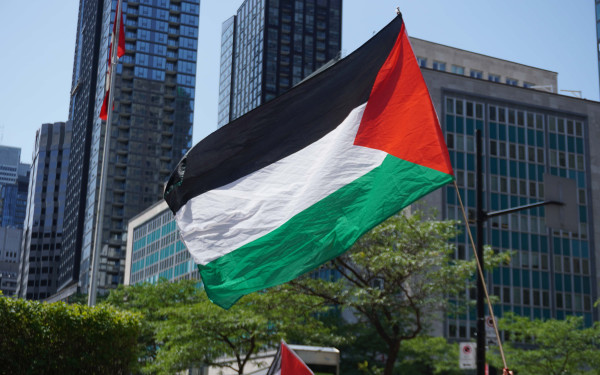Protesters Chant ‘Status for All’ in the Streets of Montreal
Solidarity Across Borders Leads Call for Regularization of Undocumented Workers, Asylum Seekers, and International Students
Hundreds came together in the early morning heat to demand legal status for undocumented migrant workers, international students, and asylum seekers on July 4.
Regularization means providing a fast track to immigration for all, according to Solidarity Without Borders, who organized the protest.
Due to the pandemic, the government needs to be providing permanent resident status for all migrants—and not just those the government labels frontline workers, said Cheryl, a member of Solidarity Across Borders. She goes by “Cheryl” to protect her identity.
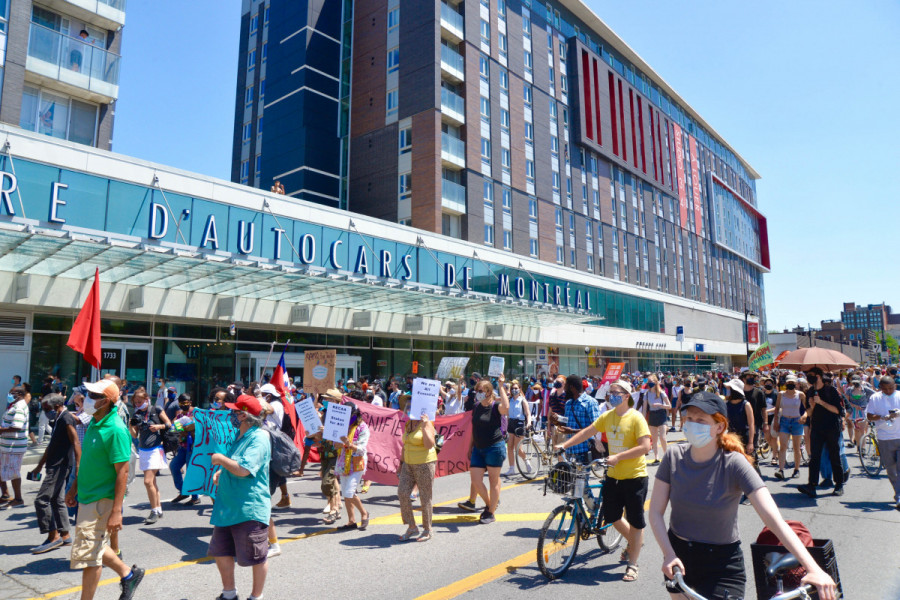
The pandemic has made undocumented people more vulnerable to the everyday discrimination they already face—whether this discrimination is through detention, potential deportation, or a lack of access to social programs or emergency measures.
“Healthcare workers are not the only frontline workers. Grocery store workers, farm workers, orderlies who clean up after the healthcare workers—all of these people provide essential services and therefore deserve status,” said Cheryl.
This regularization should be completely unconditional, she continued, and shouldn’t be based on a person’s participation in the workforce or immigration status.
“We advocate for complete regularization for all. No exceptions,” she said.
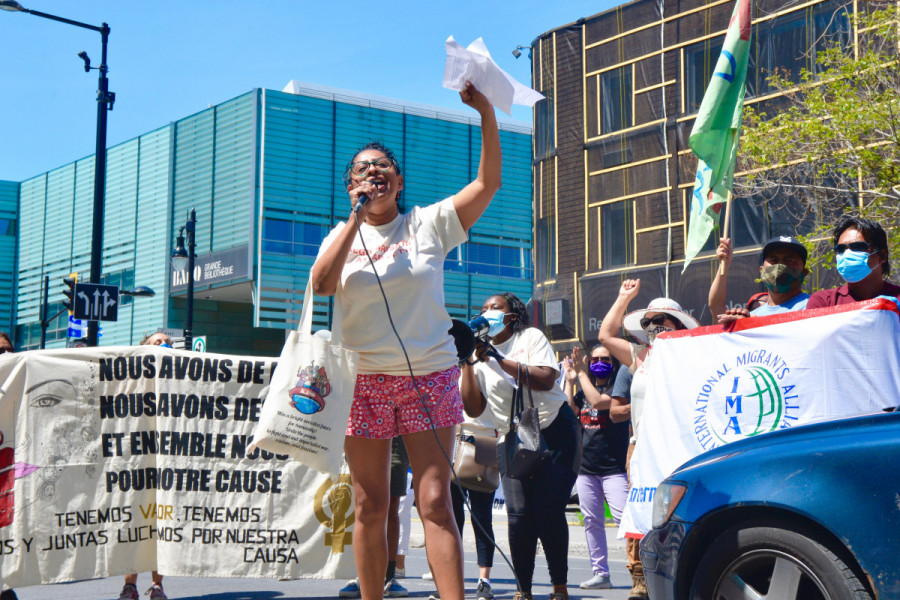
Many supporters of regularization point towards how it’s a practice of humanity; as many refugees seeking citizenship in Canada are fleeing from precarious conditions in their home countries.
Undocumented migrant workers are also often subjected to exploitation and abuse by their employers, due to them not having full status.
Cheryl said she lives in constant discomfort. As an undocumented person, she feels invisible and insecure. When her kids are sick, she can’t take them to the hospital because she doesn’t qualify for health benefits. In the context of the pandemic, the lack of access to healthcare is even more panic-inducing.
“Grocery store workers, farm workers, orderlies who clean up after the healthcare workers—all of these people provide essential services and therefore deserve status.” —Cheryl
Stella, a sex work advocacy organization in Montreal, points to other examples of abuse towards migrant workers. Most of its community are migrant sex workers who face the harshest consequences when it comes to the criminalization of sex work.
Many sex workers are at risk of deportation, and their work makes it difficult for them to acquire status. One hundred per cent of them also say they are too afraid to call the police if they experience violence.
The organizing groups also advocate for people with criminal status to be given full status—as many who engage in criminal activity do so in an effort to survive the hardship of being undocumented in Canada.

Critics of regularization have argued it could lead to influxes of illegal immigration. European political parties opposed to immigration, for example, have argued that regularization has led to an influx of undocumented immigration in Spain and Italy—but there is no data to prove this.
There is also no data to suggest that regularization leads to greater threats in terrorism or lack of security, which is another concern critics have.
Supporters of regularization say it increases tax revenue, integrates migrants, and regulates the underground economy.
The Quebec government has also recently instituted stricter measures around the Quebec Experience Program.
Before the measures were put in place, temporary foreign workers only required 12 months of eligible Quebec work experience to meet the PEQ’s eligibility requirements. Students did not require work experience to be eligible. With the new measures in place, temporary foreign workers now need 36 months of eligible work experience, while students need 12-24 months.
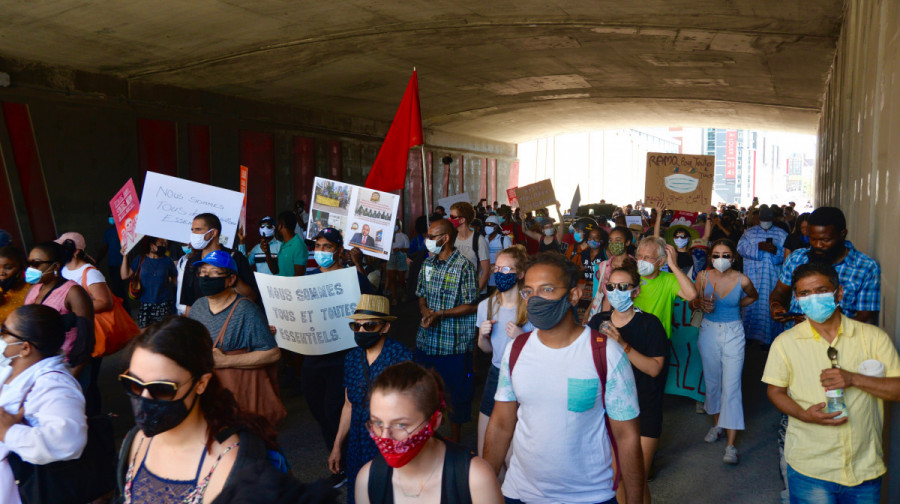
This has made the process more difficult for international students seeking permanent residency in Quebec. Solidarity Across Borders calls for the immediate regularization of international students.
The Quebec government has recently announced it will look into files of workers on a case-by-case basis, as a way of saying ‘thank you.’ For Cheryl, this seems like a political move. “It is still discrimination,” she said, “as it’s not completely clear what the criteria for approval will be.”
“Good enough to work, good enough to stay,” said Evelyn Calugay, a member of PINAY, an organization that defends Filipina workers.

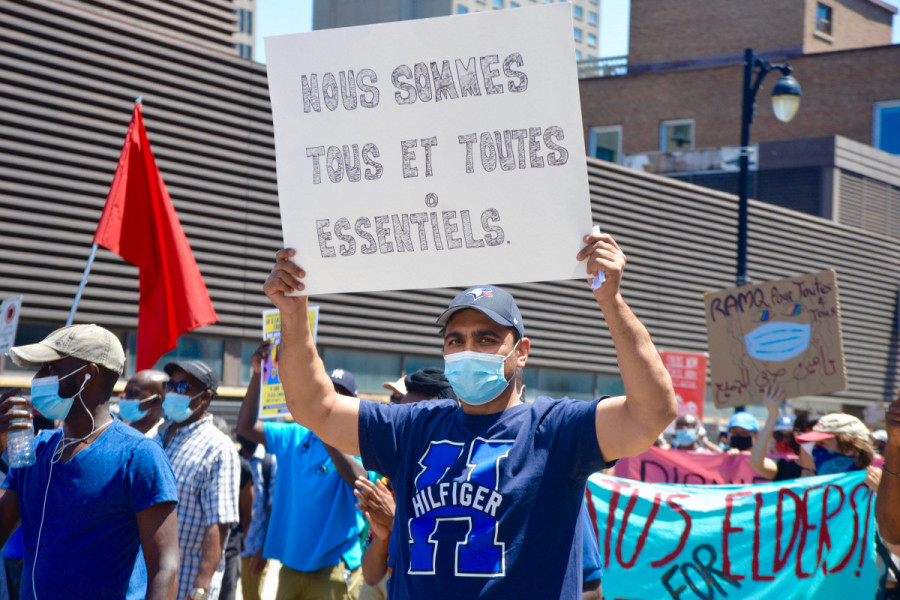


_600_375_90_s_c1.jpg)
_600_375_90_s_c1.jpeg)
_1_600_375_90_s_c1.jpeg)
